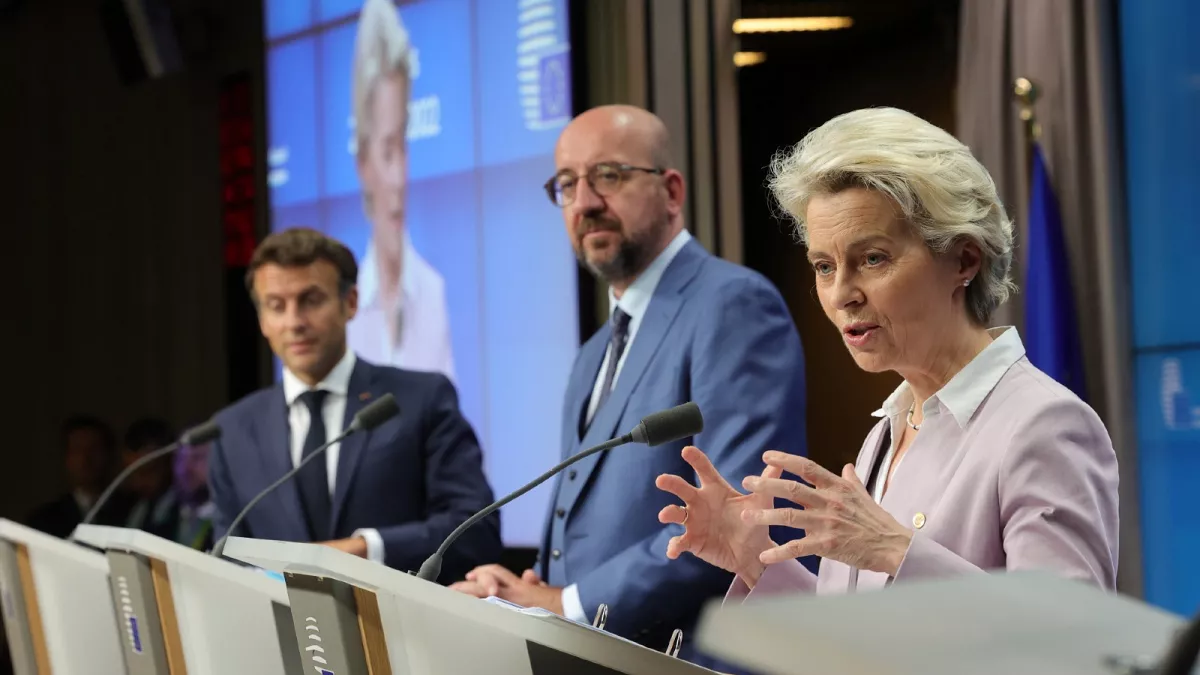Emmanuel Macron will be taking part in the summit of heads of state and government of the European Union on Thursday 27 and Friday 28 June. After having driven many advances since 2017, he risks being weakened by the result of the legislative elections. If its budget deficit widens, France will even find itself isolated and placed under surveillance by its peers.
Emmanuel Macron will arrive in Brussels on Thursday morning with a reputation as a troublemaker. By decreeing the dissolution of the National Assembly on June 9, the evening of a vote to sanction him, the head of state has not only plunged France into the unknown. He has also weakened the European Union. A stunning paradox for a man who, since his inauguration in 2017, had theorized the “at the same time” of a more vigorous France in a stronger Europe.
From now on, France’s influence in the European Union risks, conversely, being diminished. Much will of course depend on the outcome of the legislative elections. But the most likely scenarios, that of a victory for the National Rally or a National Assembly without a stable majority, would both be penalizing. Depending on the government that results, France would find itself either in a deadlocked position or handicapped by its internal cracks. However, European agreements are concluded in a subtle mix of judicious proposals, balance of power and a sense of compromise. We excel at this all the more because we have a strong political base and an administration in working order. In addition, our country will find itself under surveillance due to the drift of its public accounts. The promises made by some and others during the campaign announce a possible financial shock that would shake the entire eurozone. If it persists in spending, France will be isolated and without room for maneuver on many others.
The situation is reminiscent of that of 2005 after the failure of the referendum organized by Jacques Chirac on the European constitutional treaty. It took two years, and the election of a new president, Nicolas Sarkozy, for France to truly regain its voice in the matter. Unless there is a surprise, the time, this time again, is likely to be long.
This article is originally published on .la-croix.com








